By Christine Batchelor, Louise Callard, Becky Sanderson and Bethan Davies
1. Introduction
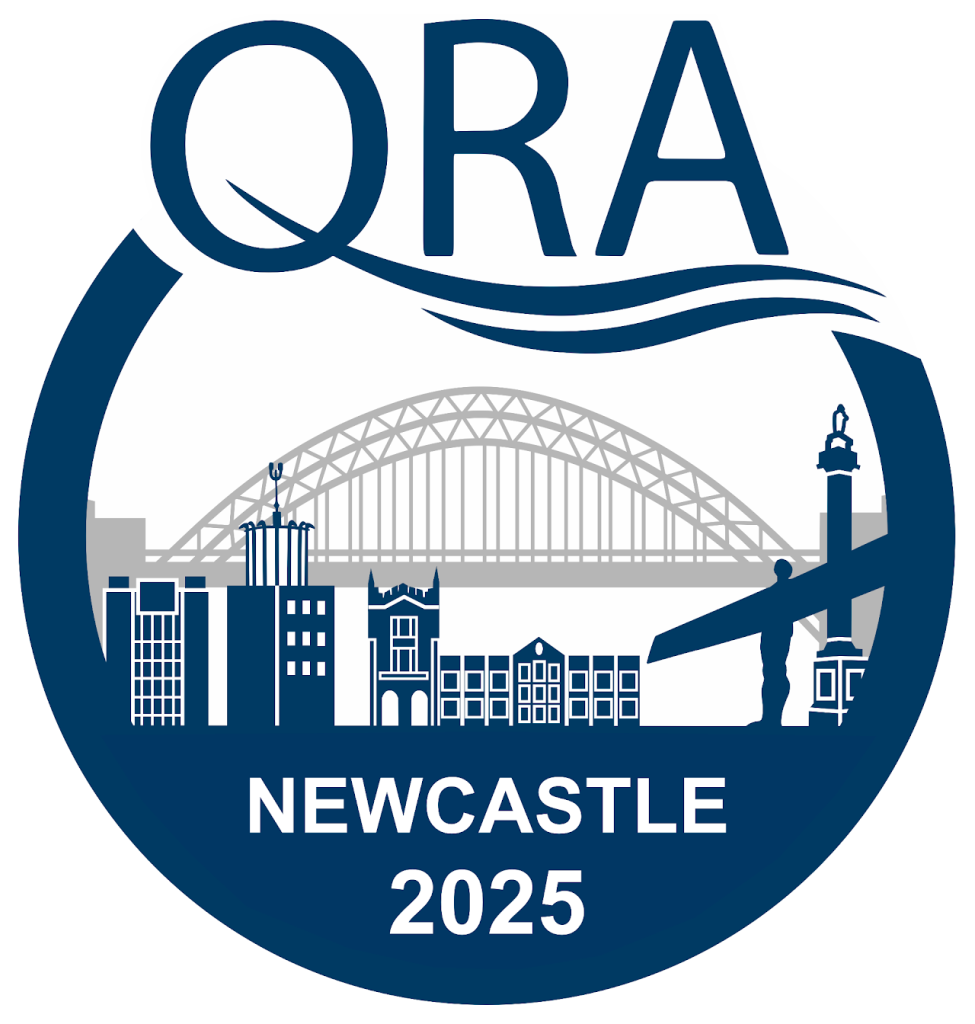
Together with other colleagues from Newcastle University, we organised the Quaternary Research Association (QRA) Annual Discussion Meeting on 6 – 9th Jan 2025.
The conference was attended by 130 people, and we had 100 submitted abstracts. There were 38 oral presentations, two keynote presentations, and ~60 poster presentations.
The conference ran over three and a half days. The first (half) day involved workshops, the Annual General Meeting, a keynote presentation and an evening icebreaker welcome event. The second day involved a keynote presentation, poster session, and three oral presentation sessions. The third day included an EDI panel, poster session, and three oral presentation sessions. The final day was a field trip to a local site.
Here we share our reflections after organising and running an academic conference, and give advice for others seeking to organise a similar sized event.
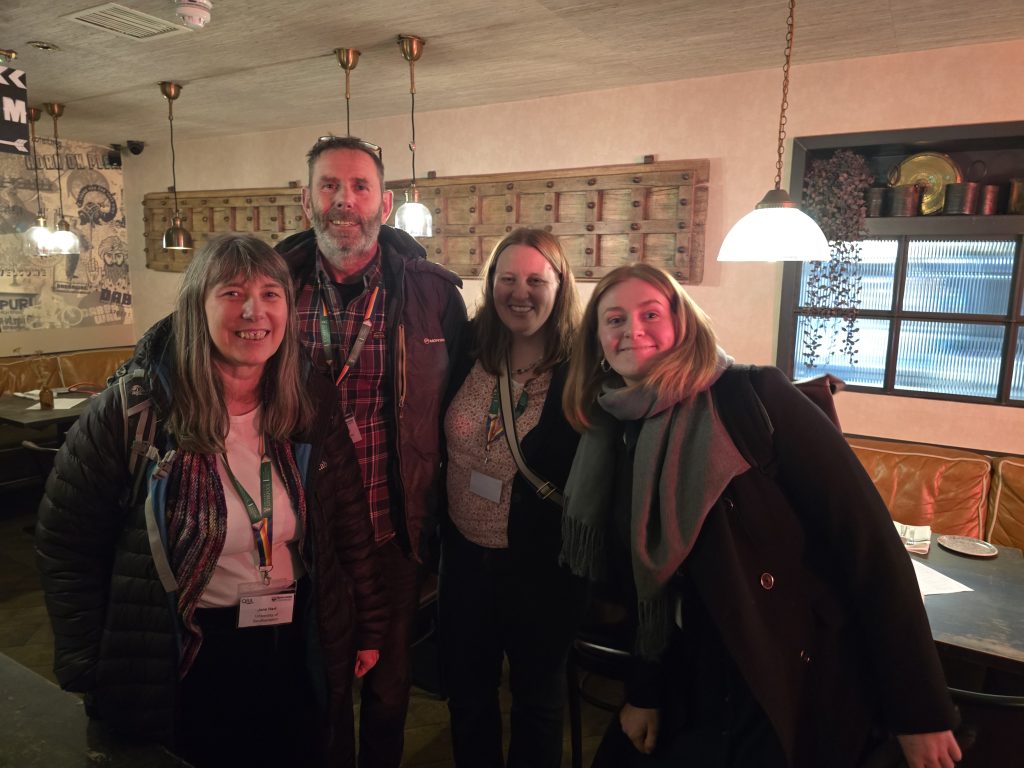
2. Before the event: Conference planning
An important first step is to build your local organising committee. Be considerate of assembling a diverse group that includes researchers of different career stages. Keep in mind that it can be extremely useful for early career researchers to gain experience of organising and running an academic conference.
Ideally, one person should oversee the conference, and they should delegate specific tasks to other team members (e.g. workshops, field trip, audiovisual controls, judging presentations).
An early step should be to finalise the conference dates and venues, and to reserve the venue spaces. You may want to hire an external venue and catering for an icebreaker and conference dinner.
Liaise with your institution’s finance department, and be aware of any closures or holiday periods that could influence your registration deadline.
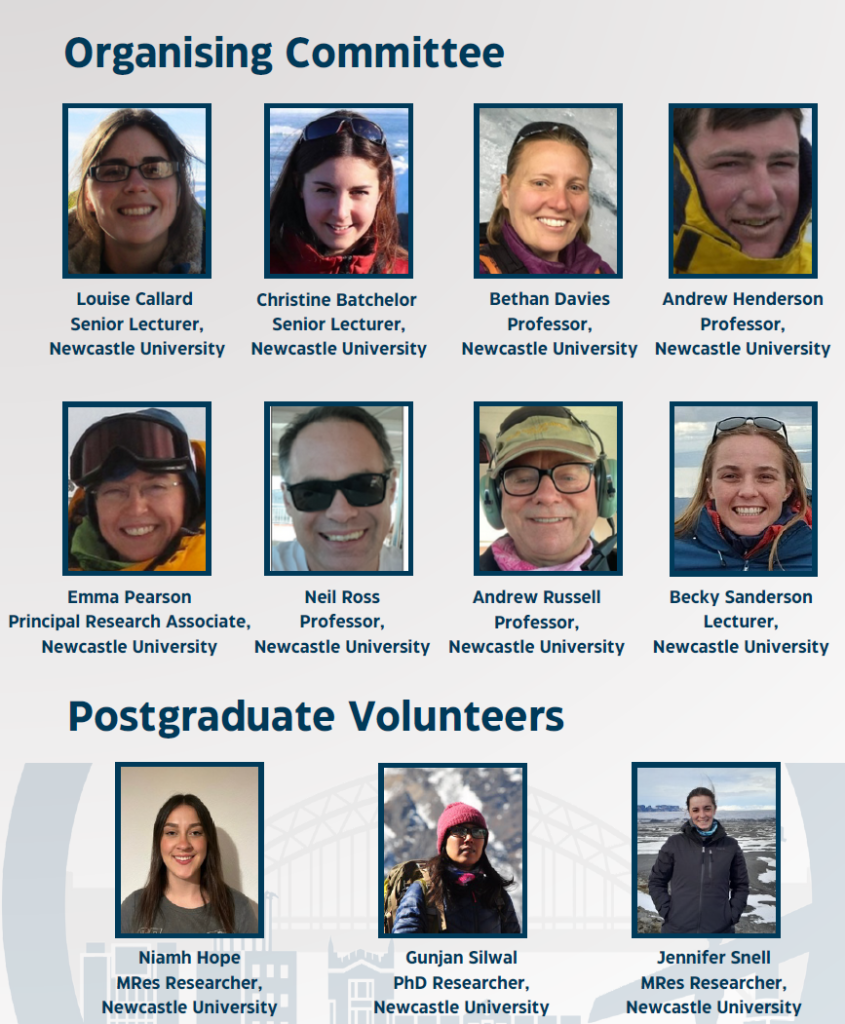
Advertising the conference
A strong conference theme and clear logo will help to advertise the conference and encourage attendance. Confirming your invited panelists and keynote speakers at an early stage will also help with attendance. You can then advertise the dates, speakers, themes and venues widely on mailing lists and social media.

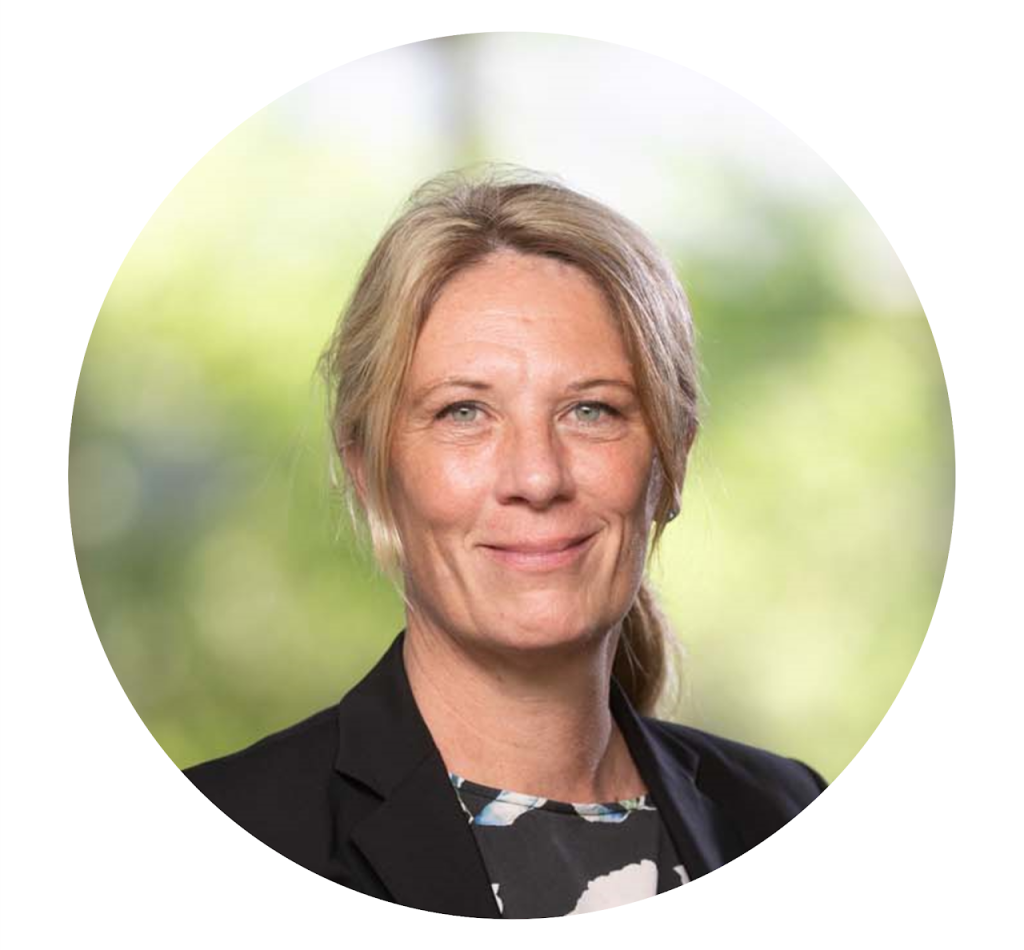
It is also important that the key information (dates, location, themes, speakers) is conveyed as soon as possible on a website. We used Google Sites to build our conference website, which we found easy to use.
Another early step is to set up a group conference email address, so queries can be directed here rather than to a specific person. It is also very useful if copies of the abstract submission and registration forms are set up to be sent to this address.
Costings
Costings should be considered an at early stage. How much should registration cost to deliver the planned activities effectively and ensure there is not a deficit of funds? Whilst it is difficult to plan numbers at this stage, the numbers from previous similar conferences could be used as a guide.
You should also ensure that the conference could operate if it was to be attended primarily by students who could have reduced registration fees.
Confirm how much financial support (if any) you will receive to support the conference, and consider where you could get funds if you don’t break even. We found that the local organising committee had to register early to ensure sufficient funds to pay for the venue deposits.
Registration
Decide what platforms will be used for abstract submission and registration. We used Microsoft Forms for the abstracts, and our University’s ‘WebStore’ platform for registration. These forms should include: name, affiliation, email address, whether you are a student, whether you would like to attend any activities (workshops, field trips), oral or poster presentation preference, and any dietary requirements.
Capturing information on gender, career stage, nationality and other data is also recommended at this stage.
Cancellation
For people who have registered, set out clear cancellation terms and conditions and share these on the website. Our policy was to permit refunds up to a certain date, after which this would no longer be possible due to the submission of catering orders.
Online attendance
People may want to attend your conference virtually for a variety of reasons. These can include long-term health considerations and disabilities that preclude in-person attendance, funding availability, caring responsibilities, and unplanned travel disruption or illness on the day. As such, providing an option for online registration and attendance is likely to be appreciated by delegates.
Whilst there are clear advantages to running a hybrid event, not least those relating to inclusivity, the committee should be aware of the level of organisation that an effective fully hybrid conference entails. What is most important is to decide on your online attendance policy at an early stage, taking into consideration your available resources, and then convey this clearly on the website and in emails. Your decision will depend on factors including the size of the organising committee, the funds available, and the audiovisual equipment and level of technical support in the conference venue.
3. Before the event: After registration / abstract submission closes
Oral presentation selection
Set out a clear abstract selection policy and share this on the conference website. This will become especially important if you receive more abstracts with an oral presentation preference than you have time for in the schedule. Here is a copy of the criteria we used for abstract selection, which takes into account the overall quality of the abstract as well as its suitability to the theme of the conference.
Once the abstract submission deadline had passed, we ranked abstracts requesting oral and poster presentations, following our abstract selection criteria. It took two people several hours to complete this process, so future organisers should be aware of this time commitment.
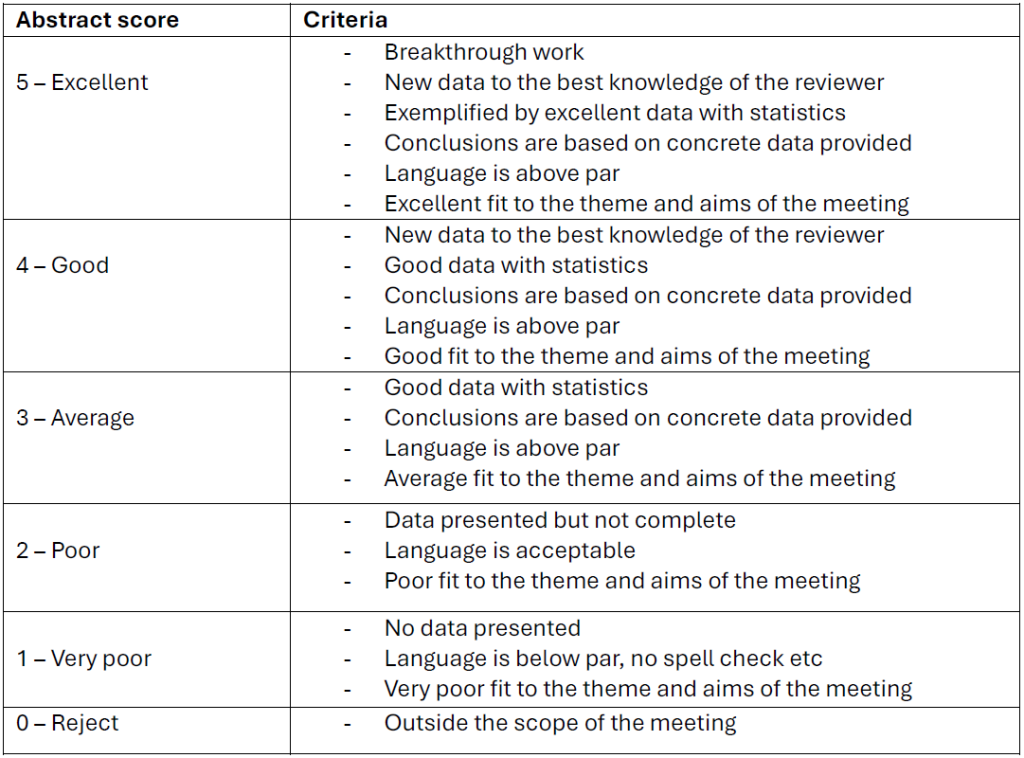
Each abstract was given a score (0-5) to indicate its overall quality and suitability for the conference. The selection of abstracts for oral presentations was then based on this score, together with consideration of diversity in research institution, gender, and career stage.
Abstract scores and feedback were stored in a spreadsheet but were not conveyed to attendees unless this was specifically asked for. Once the abstract selection process was complete, we emailed all attendees to indicate whether their presentation had been allocated an oral or poster presentation.
Members of the local organising committee did not submit abstracts for oral presentations themselves, but they were coauthors on oral presentations and did deliver posters.
Scheduling
A copy of our conference schedule is available on our website. We structured the activities around several 1.5-hour sessions, with each session comprising six oral presentations. Sessions were structured into themes, to give a coherence to the conference.
A tip is not to schedule a student to give the last oral presentation of the last day, as this can create delays for deciding the winner of the student oral presentation prize.
Side meetings often take place alongside the conference; to accommodate this, we had designated meeting rooms situated close to the conference, and these were labeled so attendees knew that they could use the rooms.
During the conference, a reception desk should be constantly available, together with lanyards, name tags and pronoun stickers. We added a coloured stripe to the name badges of the local organising committee, to make these people identifiable. We made the name tags ourselves, which was cheaper but took some time.
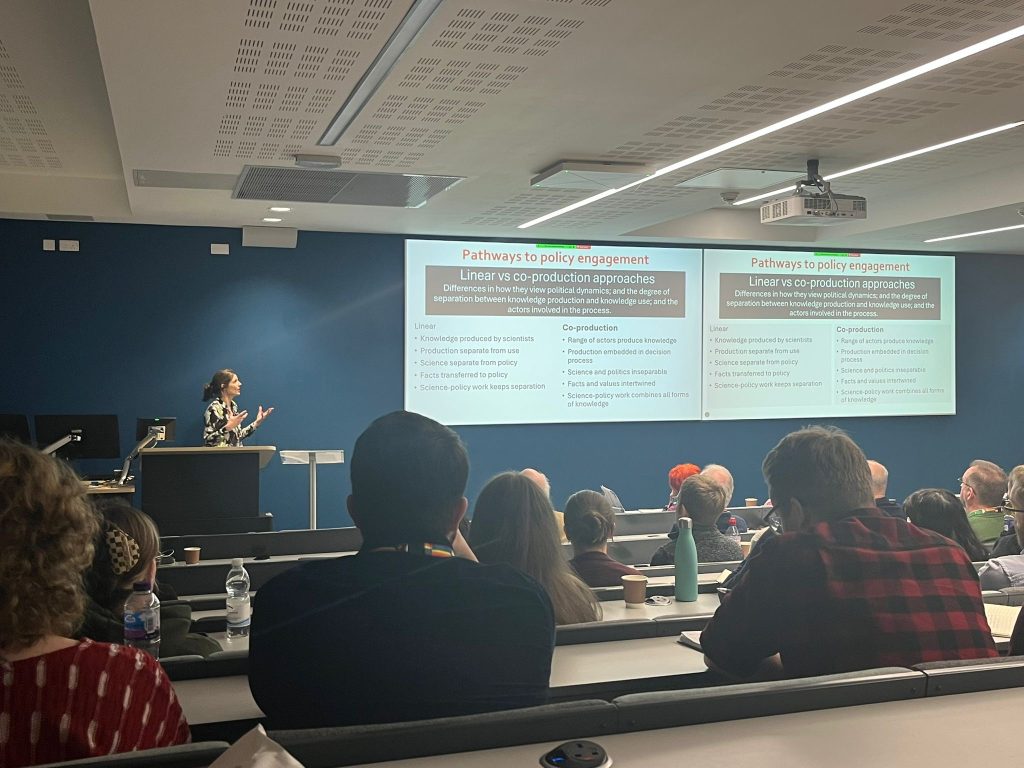
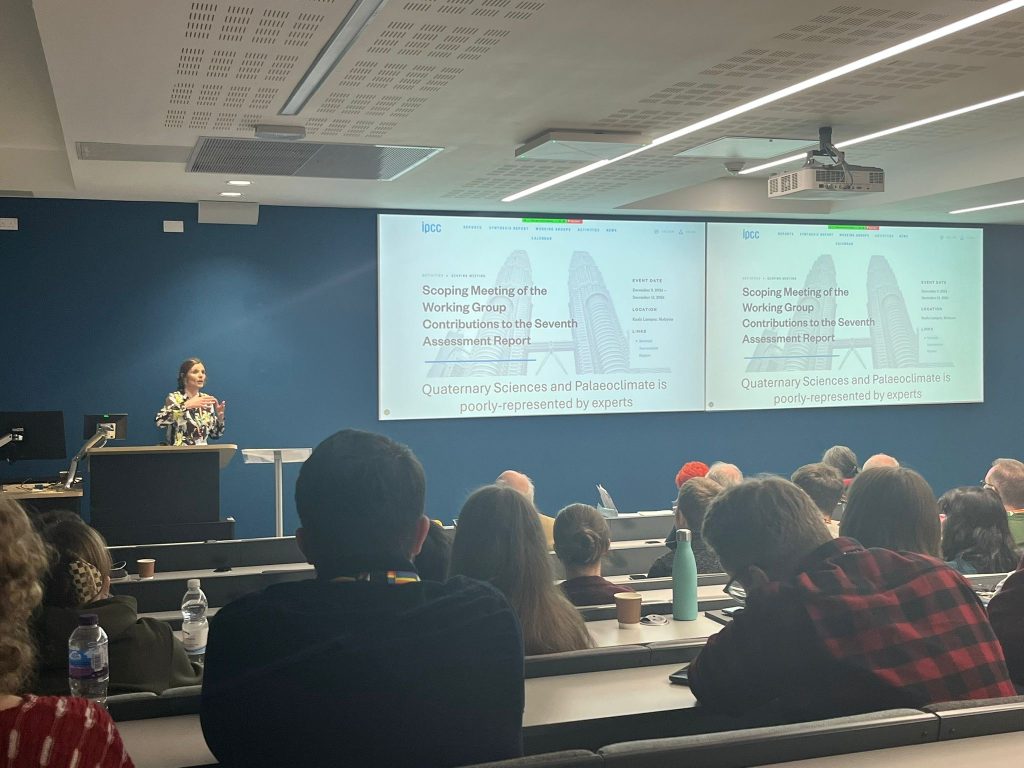
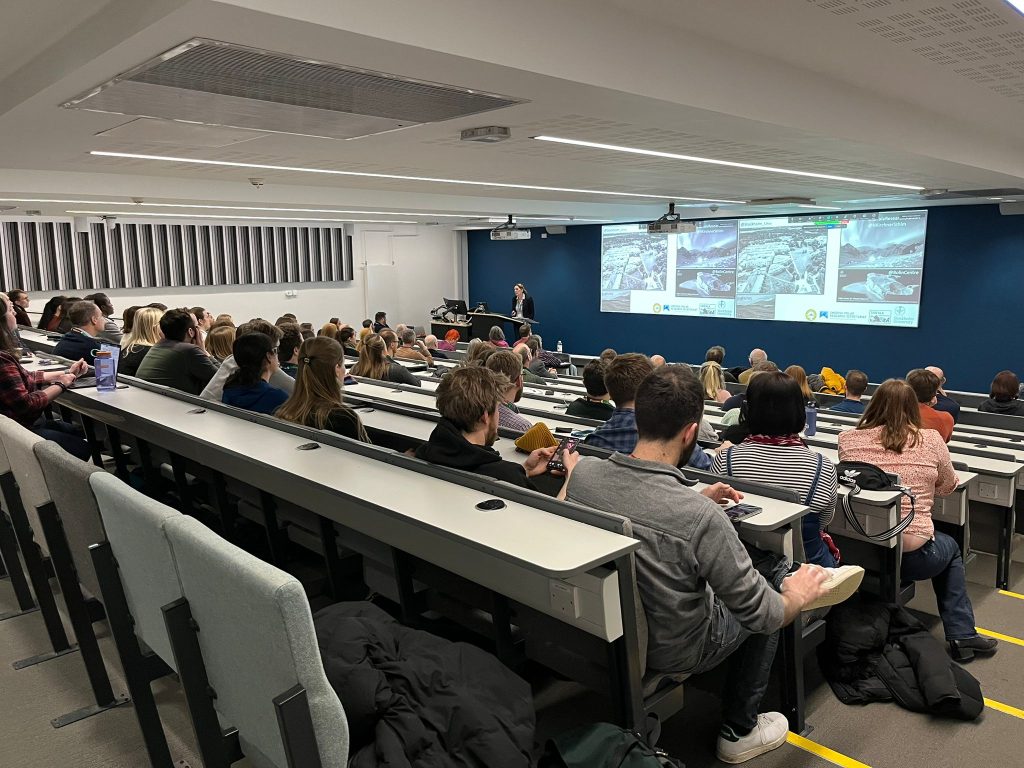
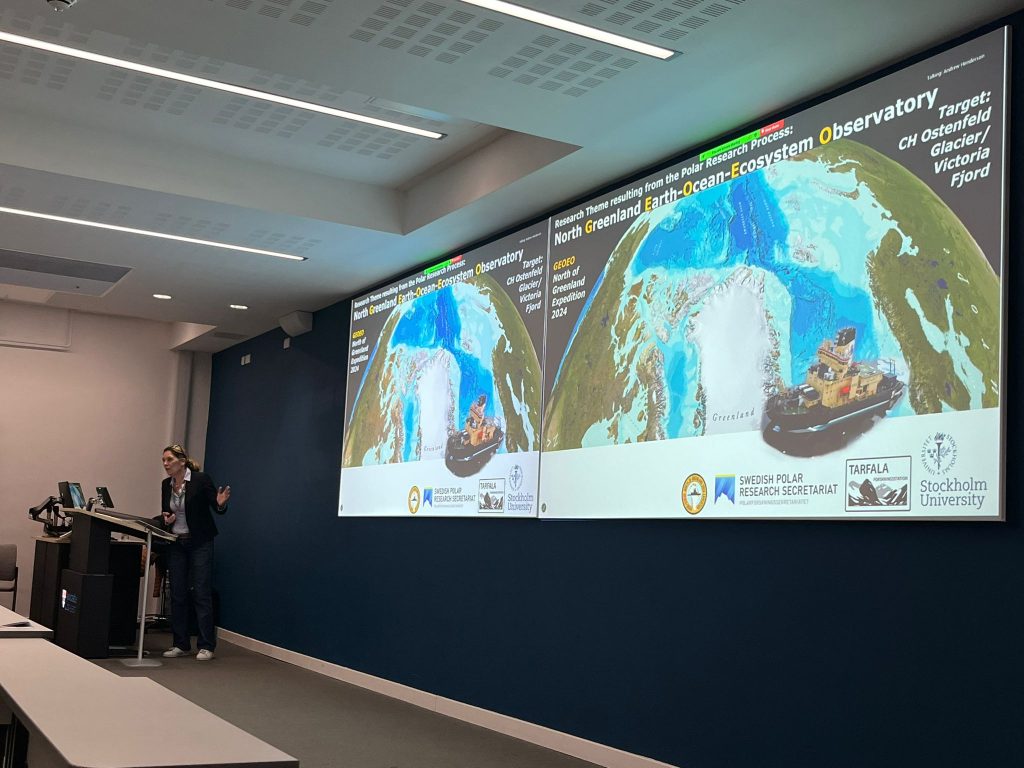

4. During the event
EDI considerations
EDI was considered at every stage of the conference planning and organisation. We ensured that early career researchers were involved throughout the organisation and running of the conference, including as part of our local organising committee. This can give valuable experience, is useful to demonstrate on CVs, and provides a high-profile opportunity to meet and engage with attendees.
Session chairing
Each of our sessions was co-chaired by an early career researcher paired with a more experienced researcher, which is an approach increasingly adopted at academic conferences. The conference organising team directly reached out to PhD students from other institutions to invite them to co-chair. The early career researcher could contribute however much they felt comfortable with to the chairing activities, whether time-keeping, fielding questions and/or introducing the speakers. This approach also ensured that they did not need to worry about managing the audiovisual equipment, which was overseen by the more experienced chair.
To ensure diversity in those asking questions after each oral presentation, we endeavoured to take questions first from early career researchers before opening up the floor to the wider community.
Quiet room
We provided a designated quiet room, to be used by attendees as a space to recharge away from the noise and bustle of the conference. This was well received by conference delegates, especially as the time of year and inclement weather precluded stepping outside. Having other rooms available close to the oral and poster presentation rooms also ensures that the conference is accessible, and could be used, for example, for attendees to watch the talks online if they have children with them and/or are breastfeeding.
EDI monitoring
As suggested by the QRA executive committee, we encouraged our attendees to complete an EDI questionnaire prior to, during or after the conference. The results from this questionnaire will enable the QRA to establish the composition of its members in terms of their career stage and protected characteristics, as well as to receive feedback and suggestions for future meetings.
Code of Conduct and Welfare
At the start of the conference, we reminded attendees about our code of conduct (listed on our website) and the need for questions to be polite, professional and constructive at all times.
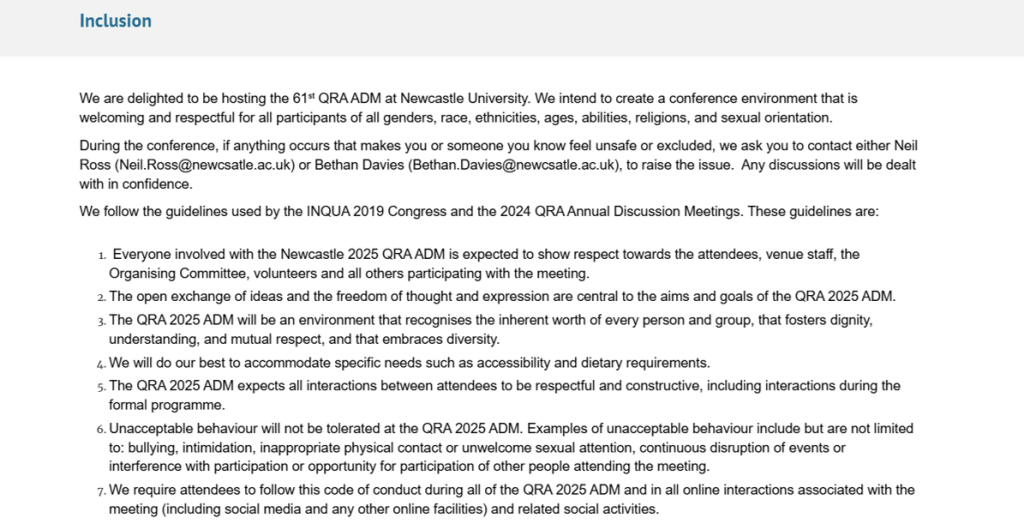
Our local organising committee also included two designated ‘safe people’ (welfare officers) who attendees could approach if they had any questions or concerns about any behaviours or experiences at the meeting.
EDI dedicated session
Our conference included a session focused on EDI best practices and reflections on creating a more inclusive field. Whilst there are still many issues within academia relating to EDI, we wanted to steer the conversation towards sharing best practice, tips and workable examples of activities that can encourage and support researchers of all backgrounds and characteristics. We particularly wanted to avoid an overly negative atmosphere, which could become overwhelming for students and other attendees.
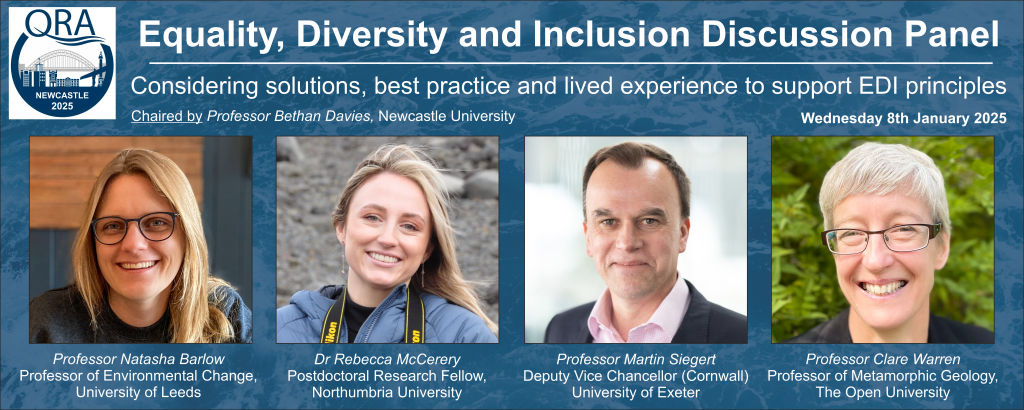
Our EDI session comprised a Q&A discussion session with four specifically invited panellists followed by two oral presentations. The panellists comprised a range of career stages, roles and genders. The resulting discussion covered the benefits to building inclusive teams and a diverse discipline, how can we build more diverse teams, how can we support our colleagues during fieldwork, and how can we best support the careers of our early career colleagues and mentees who have protected characteristics.
This EDI session was therefore deliberately wide ranging, covering socio-economic background, gender, age, nationality and more. We focused on implementable policies and solutions, focused on achievements and progress to date, and considered how to move the discipline forwards.
The oral presentations were about menstruation in the field and reflections from an outreach event aimed at schoolchildren, and were both very well received.
Mid-Career and Early Career panels
Before the conference started, we ran two free, optional workshops for attendees. These were: an early career workshop focused on writing effective CVs and cover letters for academic positions; and a mid-career workshop focused on evaluating career progression and planning effectively for the next stage. We provided all panelists with questions ahead of the day.
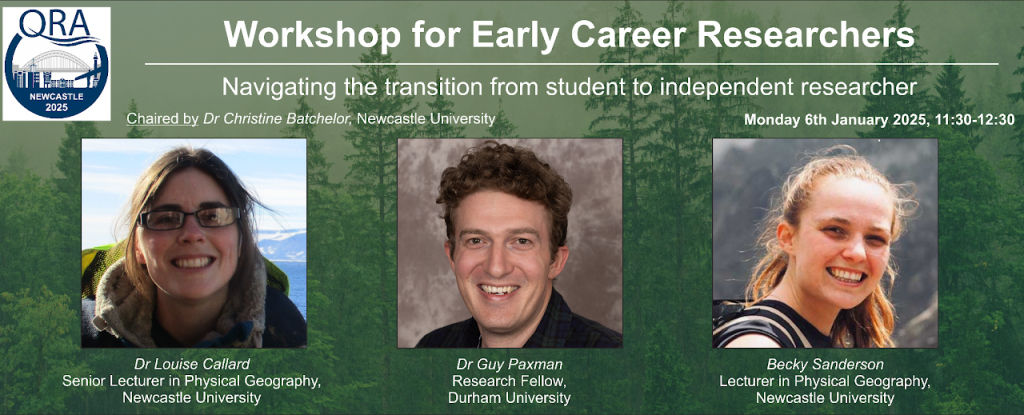

Feedback from delegates suggested that these panels were very well received, particularly the mid-career panel as this group often receives less mentoring.
Online presentations
One of the key decisions is whether it will be possible for online attendees to deliver real-time oral presentations. We decided that oral presentations from online attendees should be pre-recorded to avoid potential disruption from a poor internet connection, audio or other AV challenges, and this worked well for us on the day.
You should also decide whether questions from online attendees should be spoken or typed (and read out by someone in the room). Your online attendance policy should furthermore clearly state which activities online attendees will and will not be able to participate in. For example, we could not facilitate online attendance at the poster presentation sessions, but we created an online repository where all attendees could deposit their posters.
We found that running a hybrid event required three members of the organising committee to be dedicated solely to this task on the day:
- One person was logged into the online conference from their laptop within the oral presentation room. They managed letting people into the online meeting and reading out any questions from online attendees.
- One person managed the online screen sharing for each oral presentation that was delivered in-person. This person should ideally be different from the chair(s), who will be busy fielding questions, time-keeping, and introducing speakers.
- To ensure that online attendees can hear the in-person presentations and questions from in-person attendees, one person was in charge of managing the microphones and transporting them to speakers within the venue room.
- We also had two meetings with our University’s technician to ensure we could deliver an effective hybrid conference – one before the event to become familiar with the equipment, and one on the day to check everything was working.
Ultimately, whilst a hybrid event is generally desirable for accessibility and inclusivity, it may not be feasible in every situation given your available resources.
5. Conference field trip
A highlight for the conference for some was the post-conference field trip to the local coastline. Here we introduced delegates to the local hard rock geology, the legacy of coal mining and colliery waste on the beach, and the long glacial and interglacial record of the cliff sediments.
The conference field trip utilised a local site that was accessible and only a short drive from Newcastle by coach. Delegates were collected from the university early in the morning and returned to Newcastle train station by 1500 pm, allowing them ample time for their homeward journeys.
Key details were hiring a coach with a toilet, ensuring a prompt return on schedule, sharing a risk assessment with tide details to all attendees, providing hard hats and high-vis jackets, and providing attendees with information on the sites that we visited.
The beaches of county Durham are not always easily accessible, with steep and unfriendly steps, but with plenty of time and due care and diligence all attendees were safely returned to the train station on time.
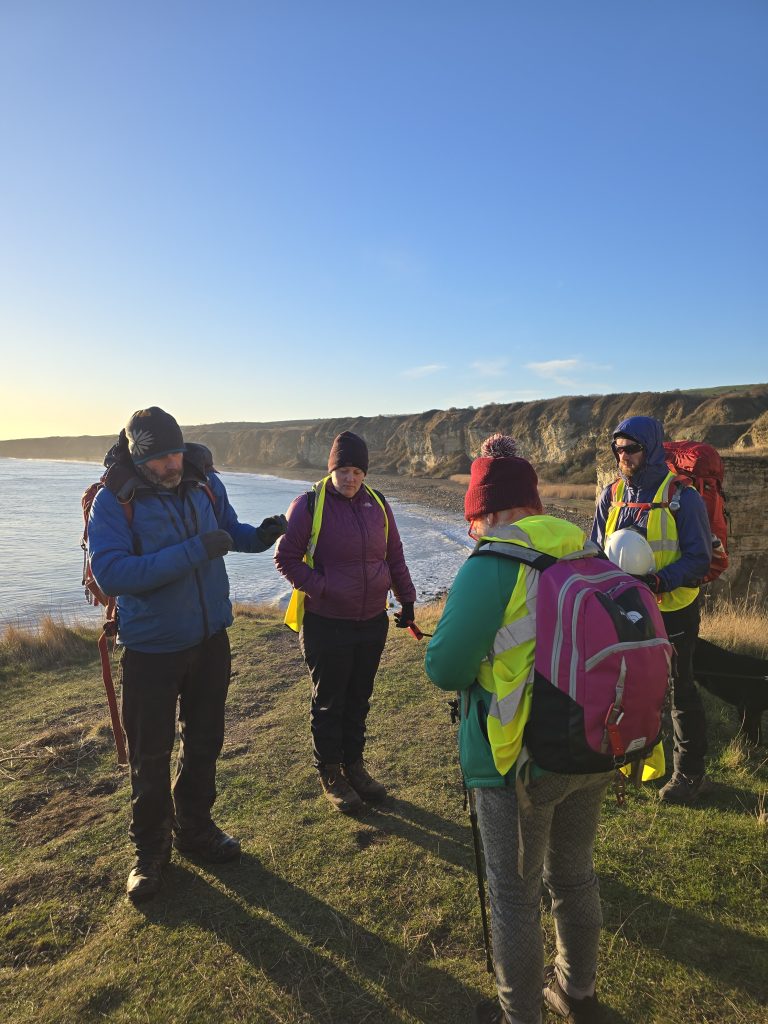
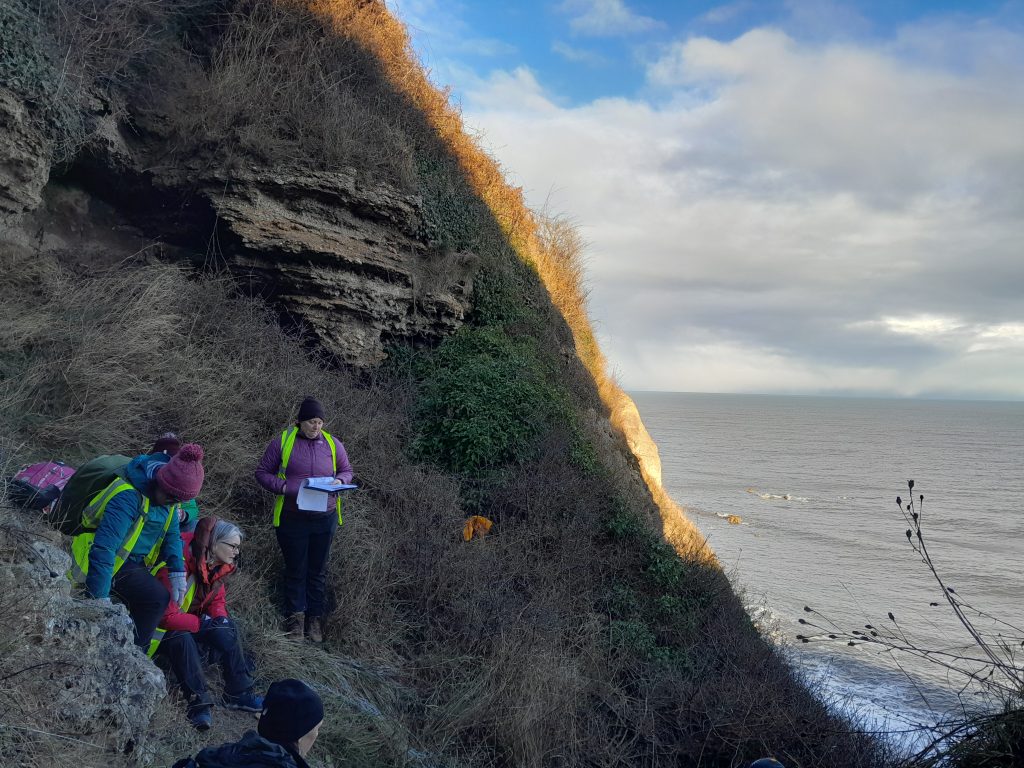
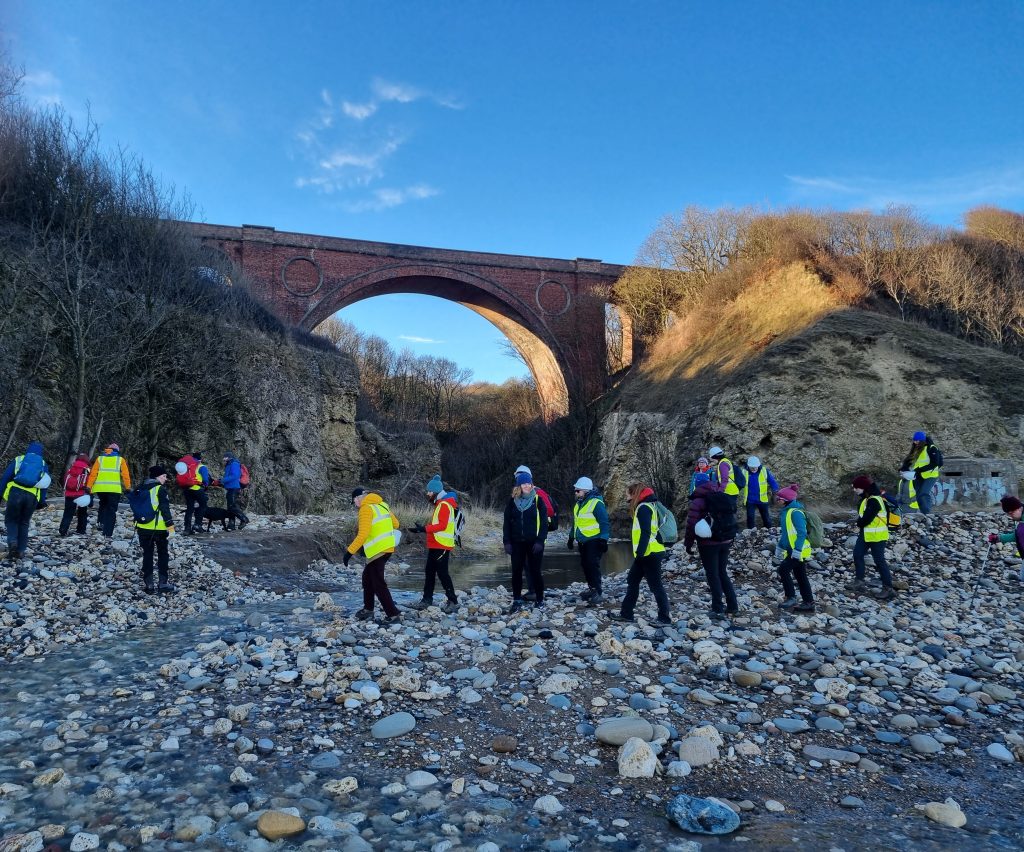
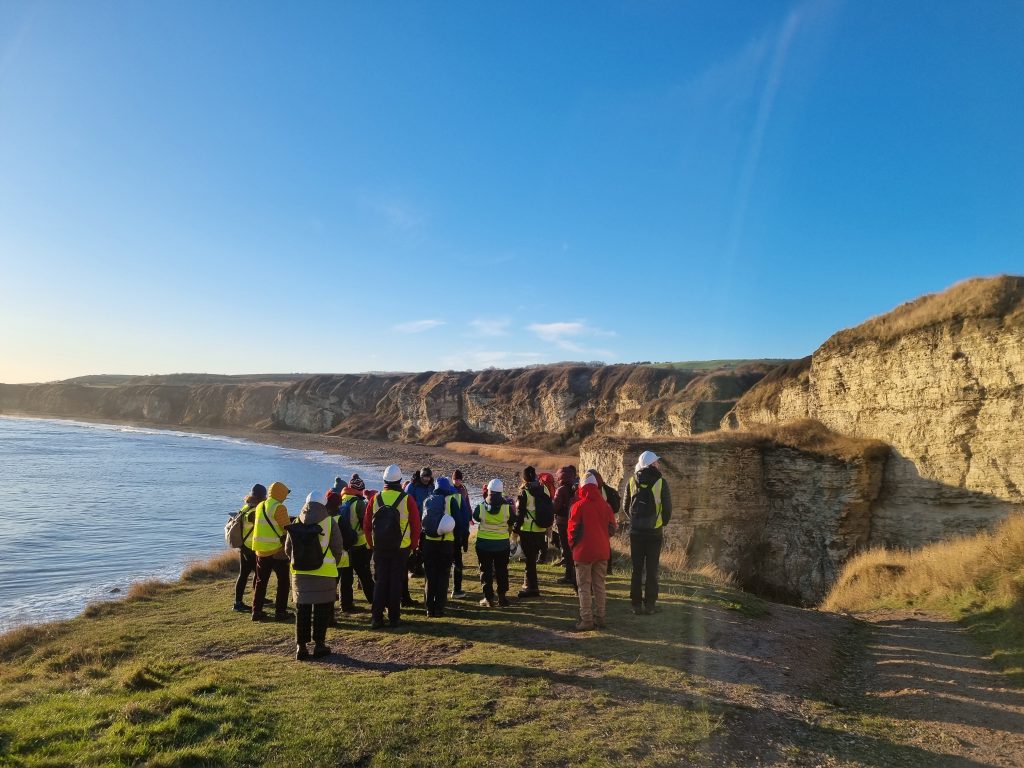
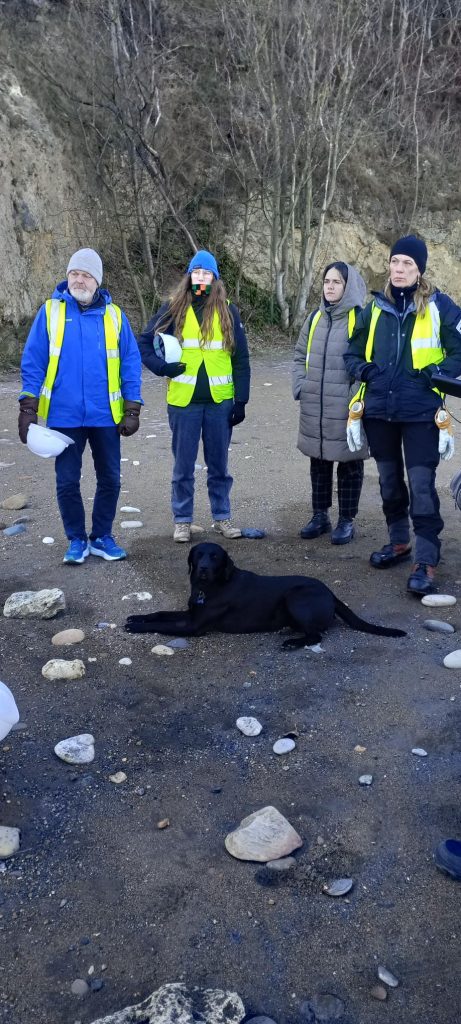
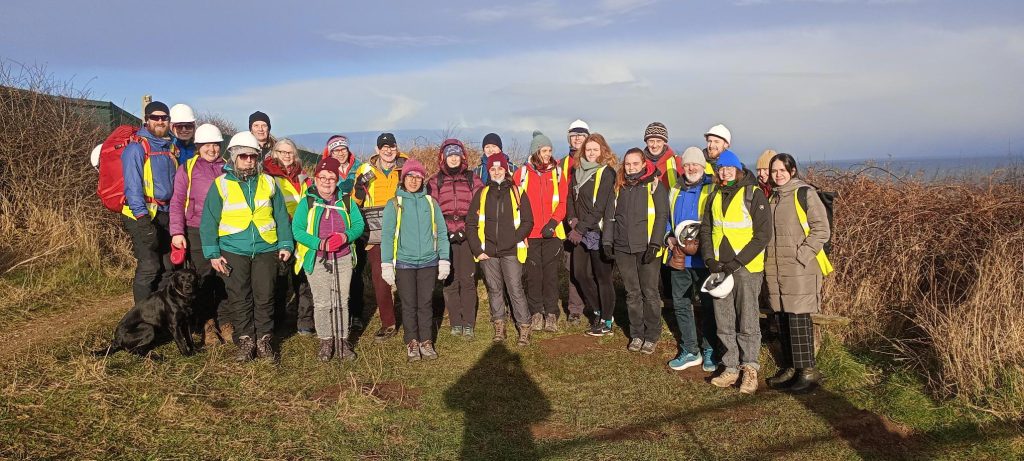
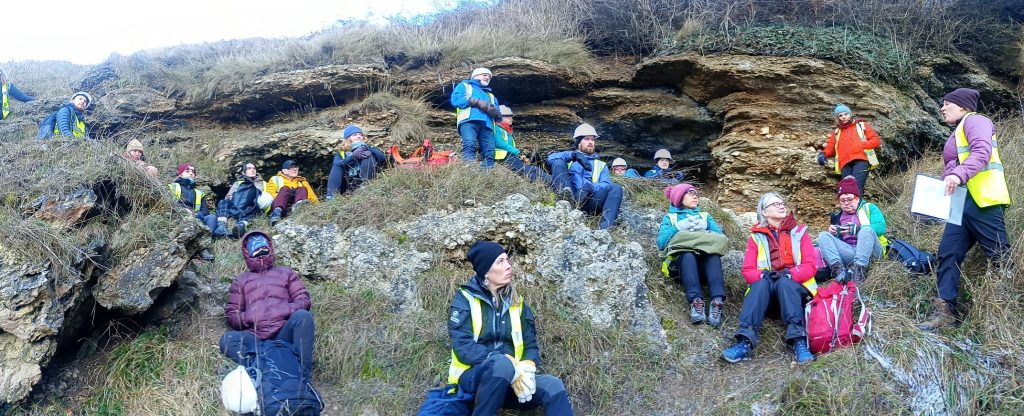
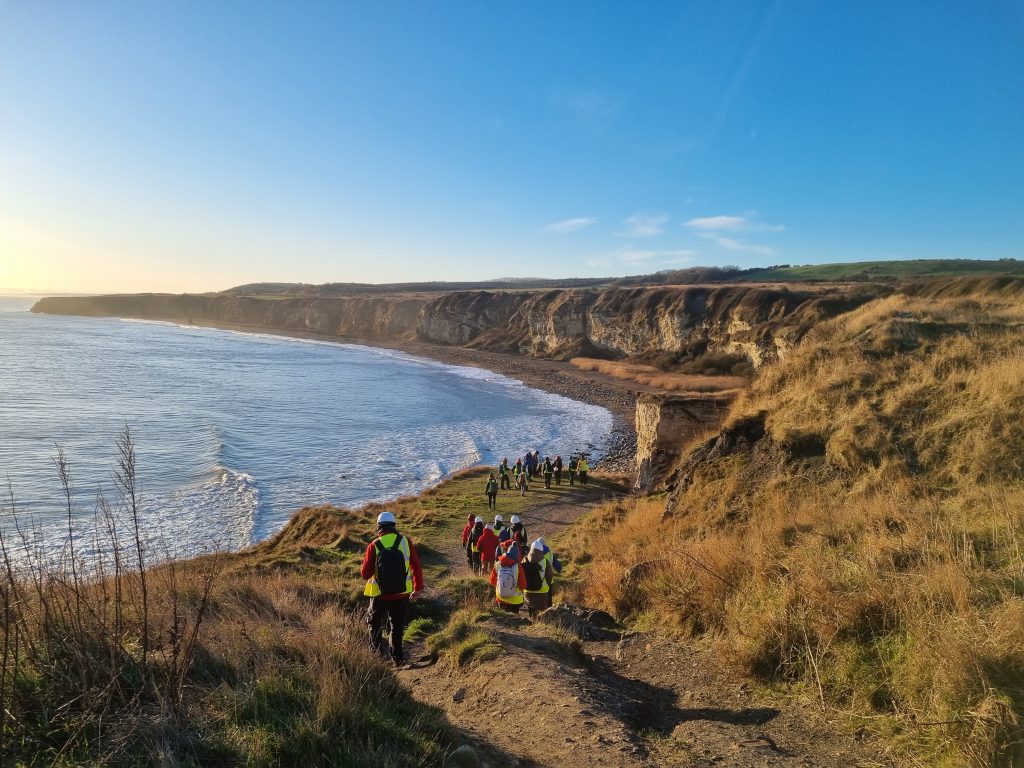
6. Final details
A little attention to detail on the last day before the conference can make a big difference! The below list details smaller tasks to be considered and potentially organised before the conference starts.
Before the conference
- Email all attendees about the timings and locations of the conference activities, and what they can expect on the day.
- Delegate members of the local organising committee or researchers from other institutions to evaluate the student oral and poster presentations. To aid this task, we produced a list of student oral presentations, and students presenting posters were encouraged to attach a student label to their poster to show their eligibility.
- Produce certificates for student awards and decide on the nature of the prize. Our winners received a book of their choice from the QRA book store.
- Ensure that risk assessments have been approved for running the conference, together with any additional risk assessment required for a field trip.
- Make sure to let anyone else who could be using the event space know about the conference and that there will be disruption on these days.
- It can be useful to have a designated quiet room and breakout rooms for attendees.
On the day
- Decide who will open and close each day of the conference and what they will say. In addition to opening the conference, they should note the fire alarm and evacuation procedures.
- A USB stick should be available in the presentation room, to help attendees to transfer their presentations.
- Produce signs for “1 min to go” and “time’s up”
Printing
- Our abstract booklets were only available online, to reduce paper waste. QR codes linking to the abstract booklet were available around the building.
- Ensure that the event spaces are suitably signposted around the building.
- It is useful to have a hard copy of the up-to-date schedule of events in the presentation room, for use by the session chairs. It could also be useful to have hard copies of bios about the keynote speakers, to read out before their presentations.
Online delegates
- All links to join online should be sent to those attending the conference virtually, together with the passwords. For security, we changed the zoom link each day.
- Inform attendees which sessions will be recorded, and how questions should be asked to speakers.
7. Reflections on the 2025 QRA meeting
Overall, the local organising committee were very pleased with how the QRA 2025 conference went and we have received a lot of positive feedback.
Factors for success
Whilst there are many factors at play, we feel that our strategy of advertising the keynote speakers, panellists, theme and logo at an early stage through our website, mailing lists, social media and word of mouth helped us to ensure the conference was well attended.
High attendance, in turn, ensured we had the funds to provide high quality (hot!) food throughout and were able to host an icebreaker event at the local museum. The food was very popular and investing in good quality food and drink meant that people were happy and comfortable.
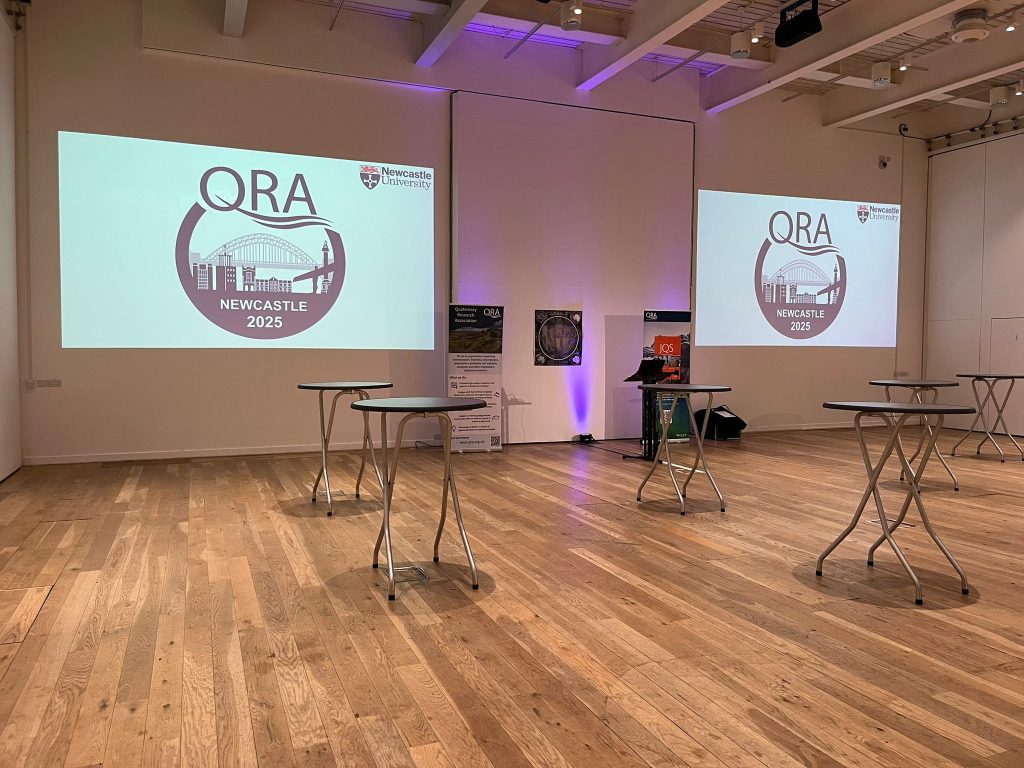
We received positive feedback, in particular, about our EDI panel, with attendees reporting that it achieved a good balance between reflecting on progress made and acknowledging the need for further change.
We also received positive feedback about the visibility of early career researchers at the conference and the opportunities provided for them to organise and engage with the events.
In terms of organisation, we found it effective for the conference chair to be a ‘floating’ presence throughout the conference, enabling them to oversee events and address any matters arising rather than to be tied to a particular task.
Challenges
The main challenge we faced was one of timing. With so many researchers in attendance, the poster presentation sessions may have benefited from being slightly longer. Some queues and pinch-points were also created in the flow of people during lunch and coffee breaks, again owing to high attendance numbers.
Whilst our workshops were well-received, in future we would approach a broader range of panelists with more varied career experiences. For example, it could have been useful for our mid-career panel to have included more speakers who have actively pursued a career pathway focused on administrative and leadership roles. Or for the early career session to have been attended by an industry partner who works closely with academics, who could introduce early career researchers to other research careers.
Organising a conference is a major undertaking, involving many colleagues and at least several months of planning. It is, however, also a highly rewarding experience, which we strongly encourage others to consider undertaking if the opportunity arises.
